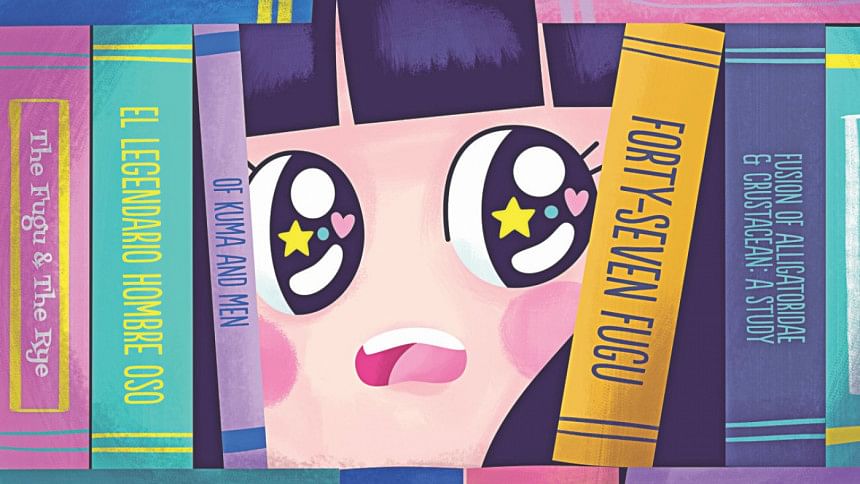In the world of Tsundoku

I came across the word "Tsundoku" in the Facebook group Litmosphere. I've recently formed a habit of buying new books, leaving them unread, and then buying some more. From my regular encounter with them (me starting at them on the shelf and them staring back at me hard) the piled up books seem old after a while. I always mean to read a book, but the confusion caused by too many choices gets me discouraged. Then I come across another one on my newsfeed, and the next day I find it on my doorstep, thanks to online stores, waiting to gather dust, just like its predecessors.
This never-ending cycle called for a distress post, where someone commented with the word "Tsundoku". I googled it, and it took my breath away.
The Japanese word "Tsundoku" means the act of collecting reading materials and letting them pile up in one's home without being read. It originates from "tsunde oku" which means to pile things up and leave it for a while.
After some research, I concluded that an exact English synonym didn't exist, because "hoarder" really doesn't capture the essence of the word. I failed to find what a person doing Tsundoku is called. So for now, I'll just call myself a Tsundoku person.
It hit me minutes later that Tsundoku was not just limited to my books, rather it encompassed everything about me. Its existence in my life is overpowering, to the point that it defines me.
When I bought my first laptop, I remember getting the latest processor, extra RAMs and every enhance-able option, although the salesman kept on saying I won't be needing them. I knew that the laptop would only prepare assignments and play movies in its lifetime, but I got the features anyway. And just like this one, in numerous occasions, I've done the same. I wanted the best, although I knew that it won't receive justifiable use.
Then I realised, that it wasn't just me. It's a problem faced by many other people around us as well.

We buy the best camera phone which ends up snapping selfies only, to be beautified later before going up on social media. We get jealous and possessive when our friend starts getting close to somebody else, but don't realise that we never gave them the importance or the understanding they deserve.
We sulk when our mother goes out of town but don't realise that we didn't spend time with her when she was home the entire past week. We constantly fight with our siblings but get really scared when they finally get into that school abroad, or get married. We go crazy and buy a hundred shades of lipsticks on sale, although, every morning, we probably rub a bit of the same few ones before rushing off.
Most of us had bought a guitar which ended up never being played, at one corner of our rooms. We couldn't sell it, or give it away, fully knowing that we'll never touch a string again. Some of us gather knowledge, but fail to share it.
Does that make us hoarders? Maybe. Does that make us resemble crows who collect shiny objects in their nests and do nothing with them? Probably.
Tsundoku is a human trait. While many negative human traits are meant to be fought against, it's not clear to me if Tsundoku is one of them.
I'll end this monologue with a quote by the American author Alfred Edward Newton.
"Even when reading is impossible, the presence of books acquired produces such an ecstasy that the buying of more books than one can read is nothing less than the soul reaching towards infinity... we cherish books even if unread, their mere presence exudes comfort, their ready access reassurance."
Maybe that is the case for us Tsundoku people, and that is the case for not just books, but everything in our lives.





Comments